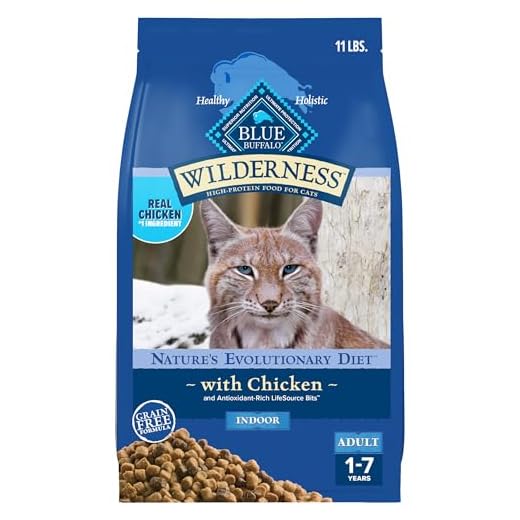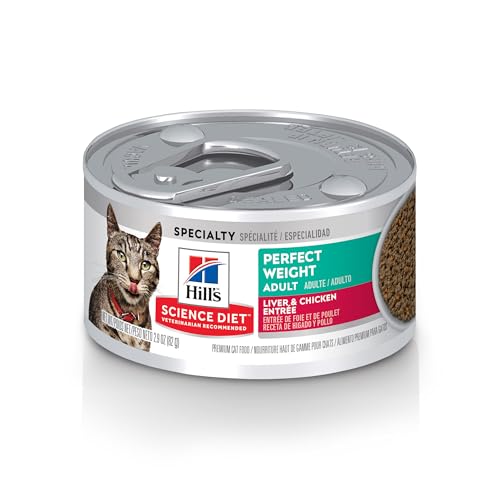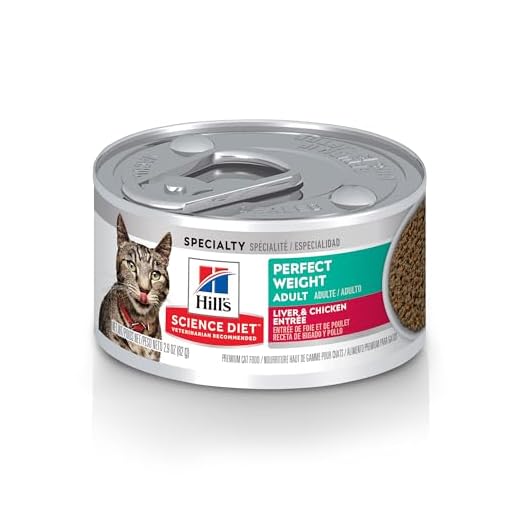

Pay close attention to your feline friend’s diet; this is one of the primary aspects that can lead to serious health complications. A balanced nutrition plan is critical. High-fat foods, particularly those not intended for cats, can create significant strain on the organ responsible for detoxification and metabolism.
Monitor your companion for any signs of stress or sudden changes in behavior. Emotional distress can trigger physical ailments, including those related to metabolic functions. Environmental changes, such as moving to a new home or introducing new pets, should be managed carefully to prevent anxiety.
Parasites and infections are additional threats that can compromise well-being. Regular veterinary check-ups, alongside preventive treatments, can help catch issues early. Make sure to keep up with vaccinations and deworming schedules to shield your furry buddy from potential dangers.
Lastly, be vigilant about any medications your pet may need. Certain pharmaceuticals can have adverse effects on the system, so always consult with a vet before introducing new treatments. Your diligence in these areas can greatly enhance your pet’s quality of life.
Risk Factors for Hepatic Issues in Felines
It’s crucial to monitor weight closely. Obesity leads to fatty deposits in the organ, which can impair function. Maintaining a balanced diet is essential; avoid high-carbohydrate foods that can contribute to excess weight.
Exposure to toxins must be minimized. Common household items, such as certain plants, cleaning products, and human medications, can be harmful. Always check for safety before introducing new substances into the environment.
Regular vet check-ups are a must. Blood tests can reveal early signs of dysfunction, allowing for prompt intervention. Keep vaccinations up to date to prevent infectious agents that can affect organ health.
Genetic predispositions exist within certain breeds. For example, Siamese and Burmese may have higher susceptibility. Be aware of breed-specific health issues and discuss them with your veterinarian.
Stress management plays a key role. Changes in the living environment or routine can lead to anxiety, which may impact overall health. Provide a stable, calm atmosphere and engage in regular playtime to reduce stress levels.
Hydration matters significantly. Ensure fresh water is always accessible. Dehydration can lead to concentrated toxins in the body, stressing the organ.
Lastly, be cautious with dietary changes. Sudden shifts can provoke adverse reactions. Gradually introduce new food items to avoid gastrointestinal upset, which can indirectly affect overall health.
Common Toxins and Medications Affecting Feline Hepatic Health
As an eight-year-old Scottish Fold, I’ve seen my share of challenges. One major concern for us felines is exposure to harmful substances. Certain everyday items can be surprisingly toxic. For instance, acetaminophen is extremely dangerous. Even a small dose can lead to severe damage, so keep it far from our reach.
Another culprit is grapes and raisins. While they might seem harmless, they can result in acute renal failure. It’s best to avoid these snacks entirely. Additionally, onions and garlic, whether cooked or raw, contain compounds that can destroy red blood cells and disrupt our bodily functions.
Many medications designed for humans can prove fatal for us. Ibuprofen, like acetaminophen, is a no-go. Just a single pill can lead to gastrointestinal bleeding and kidney issues. Always consult with a vet before administering any drug.
Some household products, such as cleaning agents and pesticides, can also pose significant risks. Ensure that these are stored securely and used in a manner that doesn’t expose us to harmful fumes or residues.
Lastly, keep in mind that certain plants are toxic. For example, lilies are particularly hazardous and can lead to renal failure if ingested. Always check if a plant is safe before bringing it into our home.
Dietary Factors Leading to Liver Disease in Cats
Maintaining a balanced nutrition plan is key to ensuring optimal health. Here are some dietary aspects to keep in mind:
- High-fat diets: Excessive fat intake can strain the metabolic processes, leading to potential complications. Providing a balanced amount of fat is essential.
- Low protein: Insufficient protein can hinder liver function. Quality protein sources help maintain tissue health and overall vitality.
- Sudden dietary changes: Abrupt shifts in food can shock the digestive system. Gradual transitions are advisable, especially when introducing new food items.
- Human food: Certain foods like onions, garlic, and chocolate are toxic. Avoid sharing your meals; stick to cat-safe options.
- Additives and preservatives: Processed foods often contain harmful substances. Checking labels for artificial ingredients can prevent long-term health issues.
Consulting with a veterinarian about the right diet can help tailor a meal plan suited to individual needs. It’s critical to monitor any signs of distress and adjust the diet accordingly.
For more on how to manage your furry friend’s interactions, check out do cats give kisses with their nose. And if you’re introducing a new feline friend, learn about how long to keep new cats separated.
Pay close attention to your feline friend’s diet; this is one of the primary aspects that can lead to serious health complications. A balanced nutrition plan is critical. High-fat foods, particularly those not intended for cats, can create significant strain on the organ responsible for detoxification and metabolism.
Monitor your companion for any signs of stress or sudden changes in behavior. Emotional distress can trigger physical ailments, including those related to metabolic functions. Environmental changes, such as moving to a new home or introducing new pets, should be managed carefully to prevent anxiety.
Parasites and infections are additional threats that can compromise well-being. Regular veterinary check-ups, alongside preventive treatments, can help catch issues early. Make sure to keep up with vaccinations and deworming schedules to shield your furry buddy from potential dangers.
Lastly, be vigilant about any medications your pet may need. Certain pharmaceuticals can have adverse effects on the system, so always consult with a vet before introducing new treatments. Your diligence in these areas can greatly enhance your pet’s quality of life.
Risk Factors for Hepatic Issues in Felines
It’s crucial to monitor weight closely. Obesity leads to fatty deposits in the organ, which can impair function. Maintaining a balanced diet is essential; avoid high-carbohydrate foods that can contribute to excess weight.
Exposure to toxins must be minimized. Common household items, such as certain plants, cleaning products, and human medications, can be harmful. Always check for safety before introducing new substances into the environment.
Regular vet check-ups are a must. Blood tests can reveal early signs of dysfunction, allowing for prompt intervention. Keep vaccinations up to date to prevent infectious agents that can affect organ health.
Genetic predispositions exist within certain breeds. For example, Siamese and Burmese may have higher susceptibility. Be aware of breed-specific health issues and discuss them with your veterinarian.
Stress management plays a key role. Changes in the living environment or routine can lead to anxiety, which may impact overall health. Provide a stable, calm atmosphere and engage in regular playtime to reduce stress levels.
Hydration matters significantly. Ensure fresh water is always accessible. Dehydration can lead to concentrated toxins in the body, stressing the organ.
Lastly, be cautious with dietary changes. Sudden shifts can provoke adverse reactions. Gradually introduce new food items to avoid gastrointestinal upset, which can indirectly affect overall health.
Common Toxins and Medications Affecting Feline Hepatic Health
As an eight-year-old Scottish Fold, I’ve seen my share of challenges. One major concern for us felines is exposure to harmful substances. Certain everyday items can be surprisingly toxic. For instance, acetaminophen is extremely dangerous. Even a small dose can lead to severe damage, so keep it far from our reach.
Another culprit is grapes and raisins. While they might seem harmless, they can result in acute renal failure. It’s best to avoid these snacks entirely. Additionally, onions and garlic, whether cooked or raw, contain compounds that can destroy red blood cells and disrupt our bodily functions.
Many medications designed for humans can prove fatal for us. Ibuprofen, like acetaminophen, is a no-go. Just a single pill can lead to gastrointestinal bleeding and kidney issues. Always consult with a vet before administering any drug.
Some household products, such as cleaning agents and pesticides, can also pose significant risks. Ensure that these are stored securely and used in a manner that doesn’t expose us to harmful fumes or residues.
Lastly, keep in mind that certain plants are toxic. For example, lilies are particularly hazardous and can lead to renal failure if ingested. Always check if a plant is safe before bringing it into our home.
Dietary Factors Leading to Liver Disease in Cats
Maintaining a balanced nutrition plan is key to ensuring optimal health. Here are some dietary aspects to keep in mind:
- High-fat diets: Excessive fat intake can strain the metabolic processes, leading to potential complications. Providing a balanced amount of fat is essential.
- Low protein: Insufficient protein can hinder liver function. Quality protein sources help maintain tissue health and overall vitality.
- Sudden dietary changes: Abrupt shifts in food can shock the digestive system. Gradual transitions are advisable, especially when introducing new food items.
- Human food: Certain foods like onions, garlic, and chocolate are toxic. Avoid sharing your meals; stick to cat-safe options.
- Additives and preservatives: Processed foods often contain harmful substances. Checking labels for artificial ingredients can prevent long-term health issues.
Consulting with a veterinarian about the right diet can help tailor a meal plan suited to individual needs. It’s critical to monitor any signs of distress and adjust the diet accordingly.
For more on how to manage your furry friend’s interactions, check out do cats give kisses with their nose. And if you’re introducing a new feline friend, learn about how long to keep new cats separated.
Pay close attention to your feline friend’s diet; this is one of the primary aspects that can lead to serious health complications. A balanced nutrition plan is critical. High-fat foods, particularly those not intended for cats, can create significant strain on the organ responsible for detoxification and metabolism.
Monitor your companion for any signs of stress or sudden changes in behavior. Emotional distress can trigger physical ailments, including those related to metabolic functions. Environmental changes, such as moving to a new home or introducing new pets, should be managed carefully to prevent anxiety.
Parasites and infections are additional threats that can compromise well-being. Regular veterinary check-ups, alongside preventive treatments, can help catch issues early. Make sure to keep up with vaccinations and deworming schedules to shield your furry buddy from potential dangers.
Lastly, be vigilant about any medications your pet may need. Certain pharmaceuticals can have adverse effects on the system, so always consult with a vet before introducing new treatments. Your diligence in these areas can greatly enhance your pet’s quality of life.
Risk Factors for Hepatic Issues in Felines
It’s crucial to monitor weight closely. Obesity leads to fatty deposits in the organ, which can impair function. Maintaining a balanced diet is essential; avoid high-carbohydrate foods that can contribute to excess weight.
Exposure to toxins must be minimized. Common household items, such as certain plants, cleaning products, and human medications, can be harmful. Always check for safety before introducing new substances into the environment.
Regular vet check-ups are a must. Blood tests can reveal early signs of dysfunction, allowing for prompt intervention. Keep vaccinations up to date to prevent infectious agents that can affect organ health.
Genetic predispositions exist within certain breeds. For example, Siamese and Burmese may have higher susceptibility. Be aware of breed-specific health issues and discuss them with your veterinarian.
Stress management plays a key role. Changes in the living environment or routine can lead to anxiety, which may impact overall health. Provide a stable, calm atmosphere and engage in regular playtime to reduce stress levels.
Hydration matters significantly. Ensure fresh water is always accessible. Dehydration can lead to concentrated toxins in the body, stressing the organ.
Lastly, be cautious with dietary changes. Sudden shifts can provoke adverse reactions. Gradually introduce new food items to avoid gastrointestinal upset, which can indirectly affect overall health.
Common Toxins and Medications Affecting Feline Hepatic Health
As an eight-year-old Scottish Fold, I’ve seen my share of challenges. One major concern for us felines is exposure to harmful substances. Certain everyday items can be surprisingly toxic. For instance, acetaminophen is extremely dangerous. Even a small dose can lead to severe damage, so keep it far from our reach.
Another culprit is grapes and raisins. While they might seem harmless, they can result in acute renal failure. It’s best to avoid these snacks entirely. Additionally, onions and garlic, whether cooked or raw, contain compounds that can destroy red blood cells and disrupt our bodily functions.
Many medications designed for humans can prove fatal for us. Ibuprofen, like acetaminophen, is a no-go. Just a single pill can lead to gastrointestinal bleeding and kidney issues. Always consult with a vet before administering any drug.
Some household products, such as cleaning agents and pesticides, can also pose significant risks. Ensure that these are stored securely and used in a manner that doesn’t expose us to harmful fumes or residues.
Lastly, keep in mind that certain plants are toxic. For example, lilies are particularly hazardous and can lead to renal failure if ingested. Always check if a plant is safe before bringing it into our home.
Dietary Factors Leading to Liver Disease in Cats
Maintaining a balanced nutrition plan is key to ensuring optimal health. Here are some dietary aspects to keep in mind:
- High-fat diets: Excessive fat intake can strain the metabolic processes, leading to potential complications. Providing a balanced amount of fat is essential.
- Low protein: Insufficient protein can hinder liver function. Quality protein sources help maintain tissue health and overall vitality.
- Sudden dietary changes: Abrupt shifts in food can shock the digestive system. Gradual transitions are advisable, especially when introducing new food items.
- Human food: Certain foods like onions, garlic, and chocolate are toxic. Avoid sharing your meals; stick to cat-safe options.
- Additives and preservatives: Processed foods often contain harmful substances. Checking labels for artificial ingredients can prevent long-term health issues.
Consulting with a veterinarian about the right diet can help tailor a meal plan suited to individual needs. It’s critical to monitor any signs of distress and adjust the diet accordingly.
For more on how to manage your furry friend’s interactions, check out do cats give kisses with their nose. And if you’re introducing a new feline friend, learn about how long to keep new cats separated.









